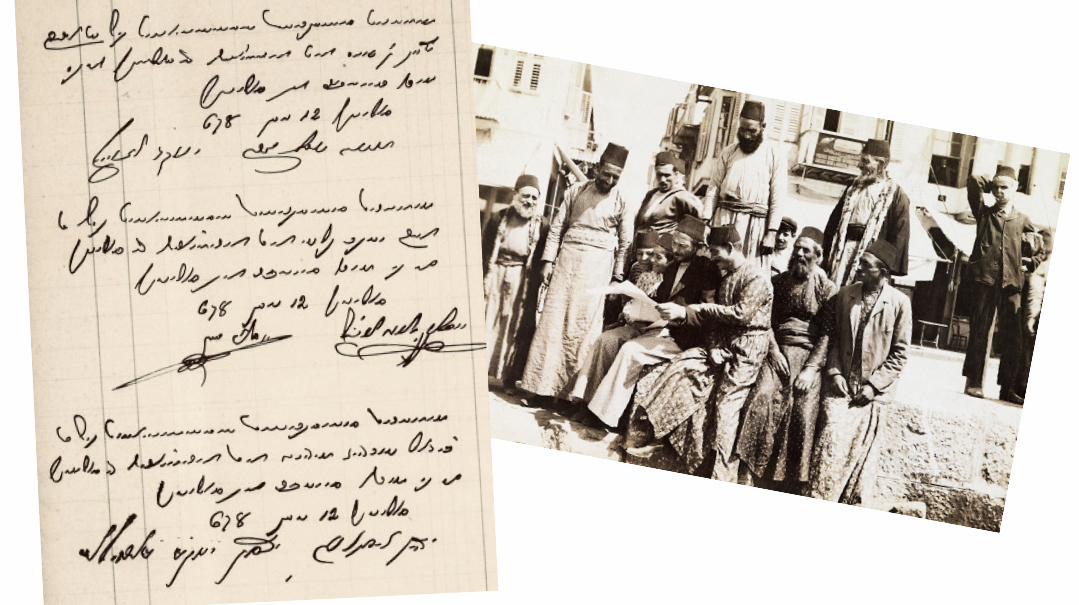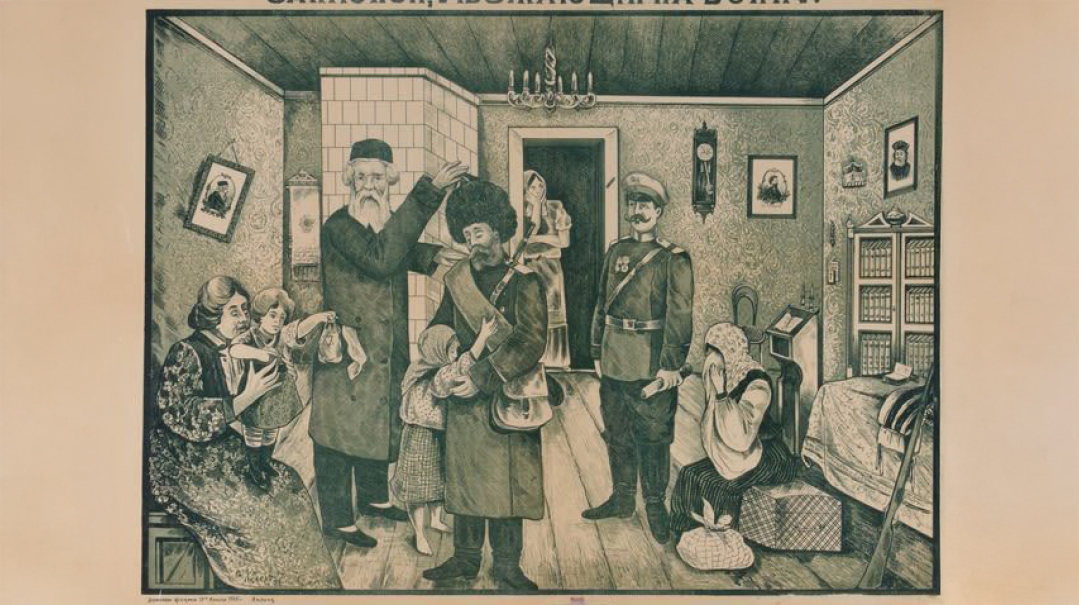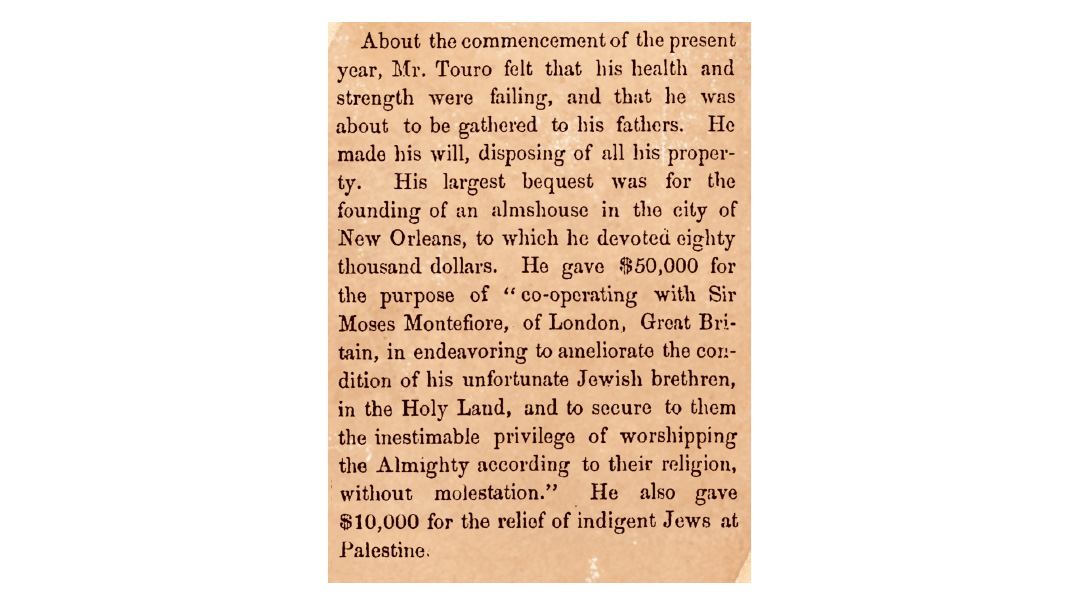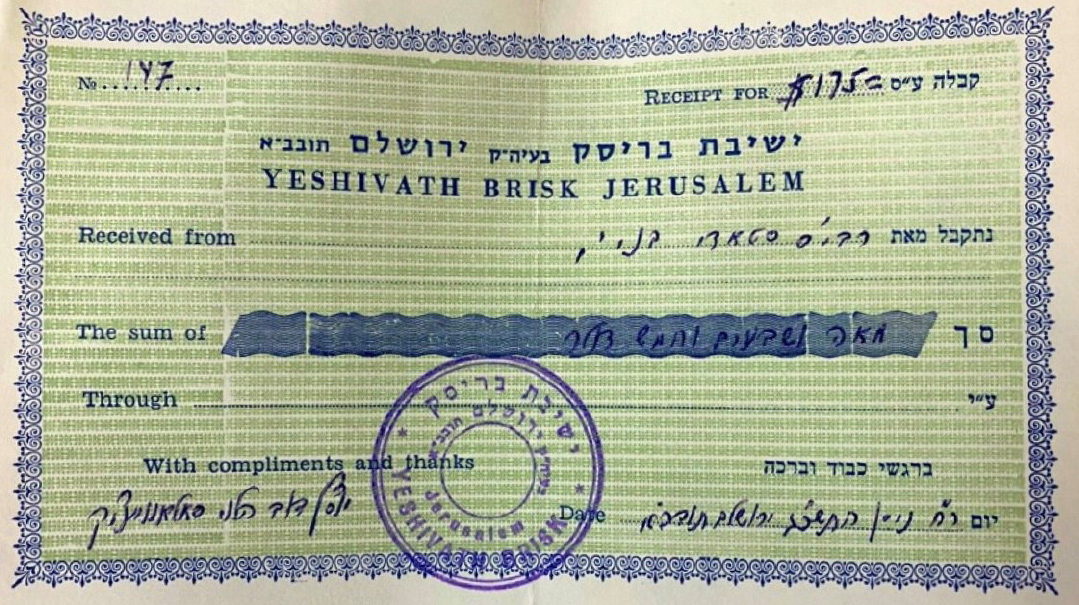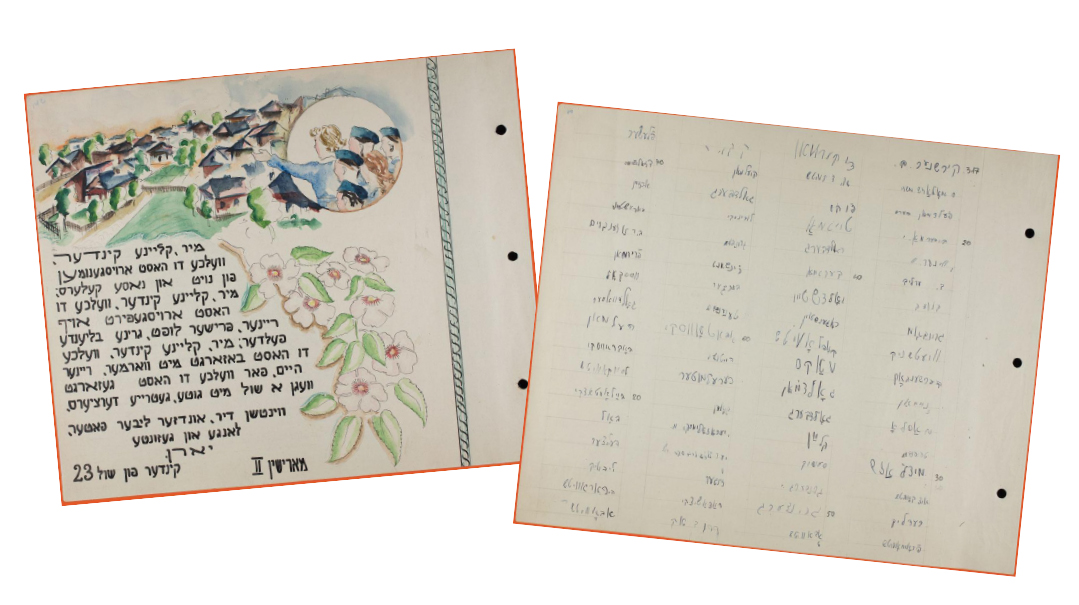To Greet or Not to Greet
| February 15, 2022Conspicuously absent was an emerging rabbinical leader of the Old Yishuv, Rav Yosef Chaim Sonnenfeld
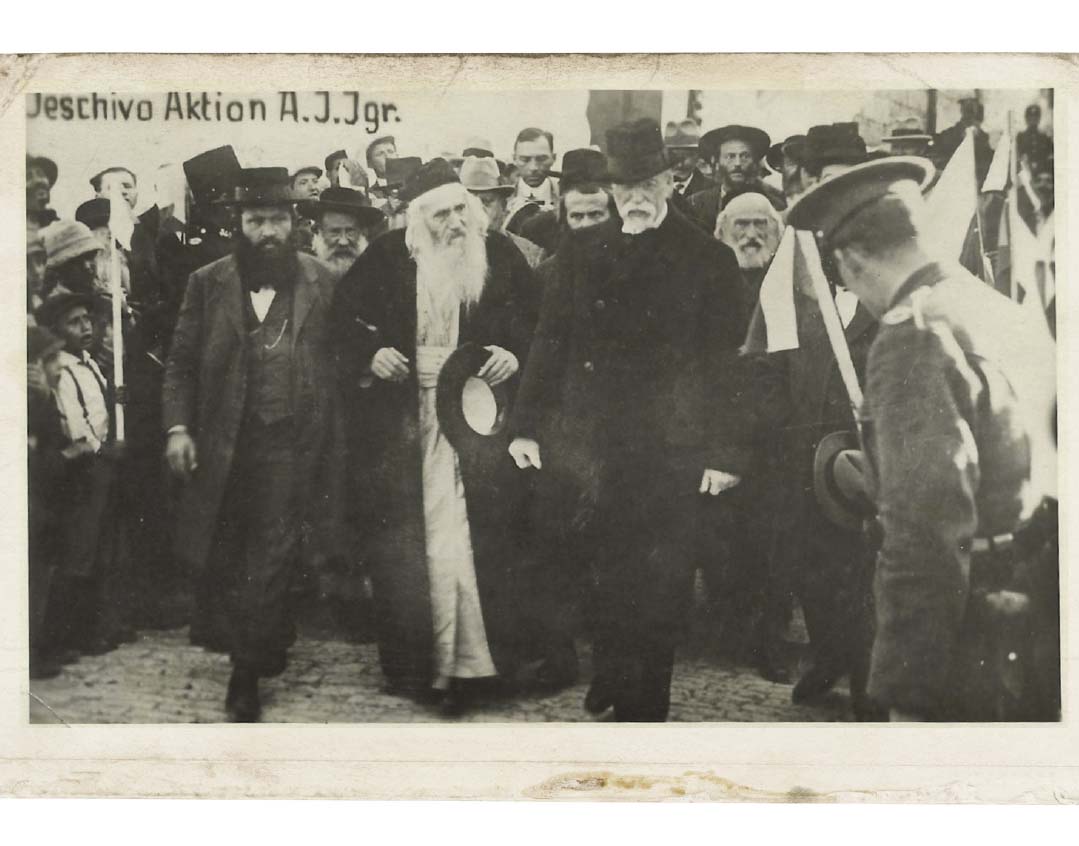
Title: To Greet or Not to Greet
Location: Yerushalayim
Document: Postcard
Time: 1927
The 1869 visit of Emperor Franz Joseph of Austria marked the first visit by a European sovereign to the Holy Land in over six centuries. Others soon followed.
In the fall of 1898, Kaiser Wilhelm II of Germany made a highly publicized visit to the Levant to solidify his relationship with the Ottoman Empire. On October 29 his entourage arrived in Jerusalem. Among the many who joined the royal reception were representatives of the Jewish Yishuv, both old and new. An elaborately decorated makeshift gate was erected on Rechov Yaffo. The chief rabbis of the city, Rav Shmuel Salant and Rav Yaakov Shaul Elyashar, along with leading dignitaries of the Jewish community, stood at the head of the crowd.
Conspicuously absent was an emerging rabbinical leader of the Old Yishuv, Rav Yosef Chaim Sonnenfeld. Citing a tradition he had received that Germany had the status of zera Amalek, he said he didn’t wish to attend an event that would require him to recite a blessing on a king from the Amalekite nation.
Following the death and destruction wrought by Germany’s role in World War I two decades later, England’s King George V, Wilhelm’s first cousin, called the Kaiser “the greatest criminal in history,” seemingly vindicating Rav Sonnenfeld’s hesitation. Yet it would be another few years before the entire world would tragically witness just how much damage the German modern-day Amalek would be capable of inflicting on the world in general and on the Jewish People in particular, thus confirming Rav Sonnenfeld’s vision so many years before.
A different head of state’s visit in 1927 begot a contrasting reaction from the venerated sage. This time it was Tomáš Masaryk, president of Czechoslovakia. Not only was he known as “the George Washington of Czechoslovakia” and a paragon of democracy in an increasingly authoritarian atmosphere, he was a friend of the Jews, too. As a professor at Charles University at the turn of the century, he had defended the Jews against a ritual murder charge in Bohemia during the infamous Hilsner trial in 1899.
Interwar Czechoslovakian Jewry enjoyed full equal rights under Masaryk’s liberal policies, and he actively combated anti-Semitism and was a supporter of Zionism. Several Zionist congresses were held in the inviting atmosphere of the country during this time, as was the third Knessiah Gedolah of Agudas Yisrael. In recognition of his friendship with the Jewish People, the kibbutz Kfar Masaryk in the Galilee is named for him.
In 1927 Tomáš Masaryk visited the Yishuv in Palestine. Upon his arrival in Yerushalayim, he was greeted by a large crowd, representing the various factions of the Jewish community. This time it was headed by the titular leader of the Old Yishuv, Rav Yosef Chaim Sonnenfeld. Walking alongside the Czech president, Rav Sonnenfeld escorted him through the throngs and among the decorated streets. Though the visits were three decades apart, Rav Sonnenfeld made his astute observation clear to all — priorities wouldn’t be compromised, and respect was accorded where it was due.
The Big Builder
Alongside his many accomplishments over the decades at the helm of the Old Yishuv, Rav Yosef Chaim Sonnenfeld was also quite active in initiating building projects in Yerushalayim’s new neighborhoods. These included Beis Yisrael, Batei Ungarin, and Shaarei Chesed. He also oversaw the administration of Kollel Shomrei Hachomos, the Diskin Orphanage, and the Chevra Kaddisha.
A Poretz Geder
In preparation for Kaiser Wilhelm’s visit, the Ottoman municipality decided to create a breach in the Old City walls to the right of Shaar Yafo in order to facilitate a grand entry for his entourage. Yerushalayim educator and writer David Yellin noted that this was a manifestation of the saying of Chazal, that a king is poretz geder. This breach in the wall remained, and is the primary entry of vehicular traffic into the Old City until this very day.
Lasting Lineage
Tomáš Masaryk’s son was legendary Czechoslovakian foreign minister Ján Masaryk, who was remembered as a close friend of the Jewish People. Following World War II, Czechoslovakia, under Masaryk’s guidance, allowed thousands of Jewish refugees from Eastern Europe to cross through its territory on their way to Palestine. He also played a role in Czechoslovakia’s vote in favor of the UN partition resolution recommending the establishment of a Jewish state. Perhaps most importantly, Czechoslovakia defied the UN embargo and provided crucial military support and training for the nascent Israeli Air Force, which was critical to Israel’s miraculous victory in 1948.
Rav Yosef Chaim Sonnenfeld’s 90th yahrtzeit will be commemorated on 19 Adar II.
Belated thank-yous to Moishe Klein (Lakewood) and Yanky Zahler (Monsey) for their assistance with last week's article on Rav Ahrele Belzer.
(Originally featured in Mishpacha, Issue 899)
Oops! We could not locate your form.
